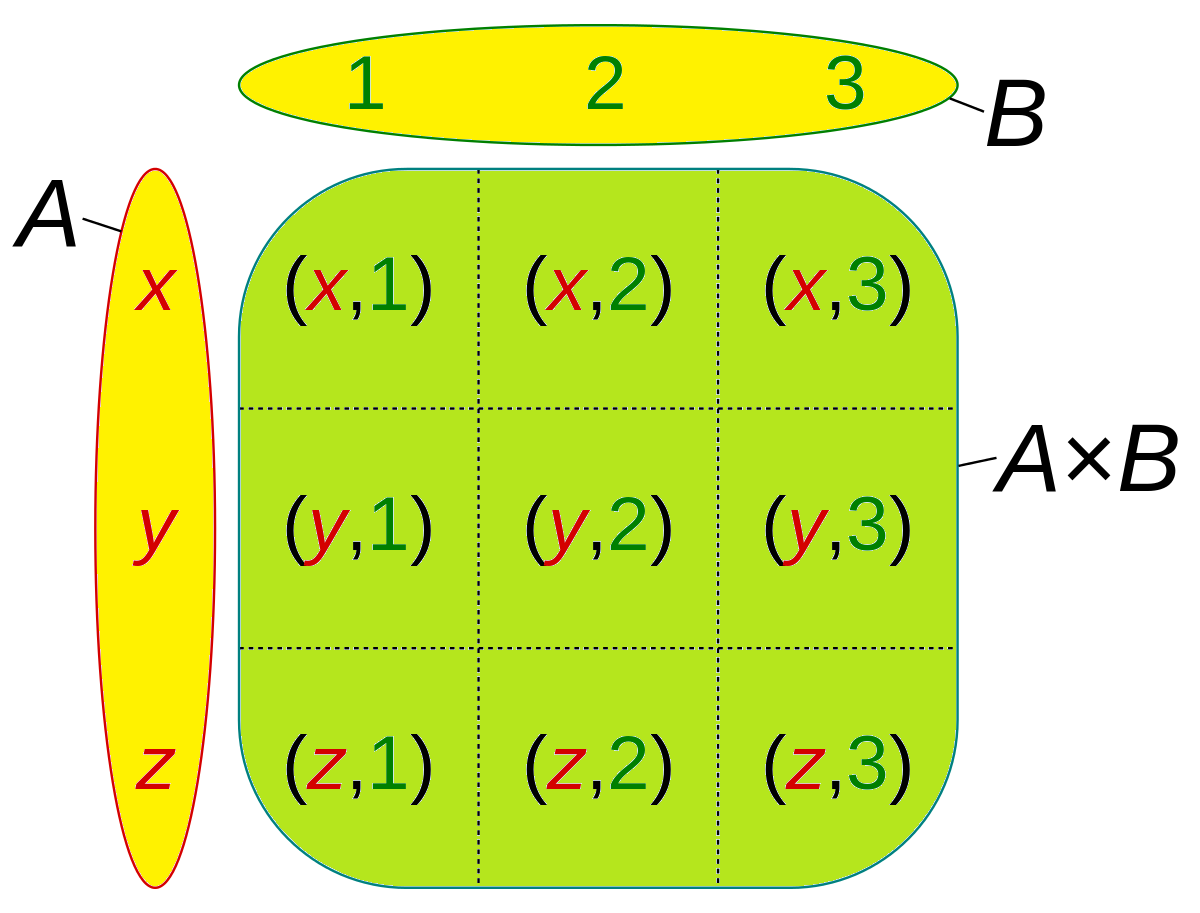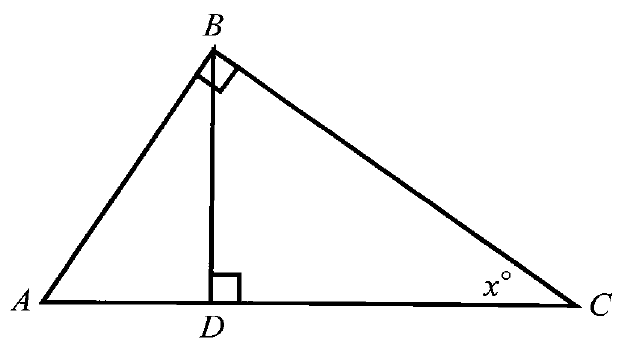CARTESIAN PRODUCT OF TWO SETS
If A and B are two non-empty sets, then the set of all ordered pairs (a, b) such that "a" belongs to A and "b" belongs to B, is called the Cartesian product of A and B, to be denoted by A x B.
Thus,
A x B = {(a, b) : a ∈ A and b ∈ B}
And the Cartesian product of B and A, to be denoted by
B x A
Thus,
B x A = {(b, a) : a ∈ A and b ∈ B}
And also,
A x B ≠ B x A
But,
n(A x B) = n(B x A)
If A is null set or B is null set, we define that A x B is null set.
The figure given below clearly illustrates the Cartesian product of two sets.

Solved Examples
Example 1 :
Let A = {1, 2, 3}, B = {4, 5}. Find A x B and B x A.
Solution :
A x B = {(1, 4), (1, 5), (2, 4), (2, 5), (3, 4), (3, 5)}
B x A = {(4, 1), (4, 2), (4, 3), (5, 1), (5, 2), (5, 3)}
Example 2 :
If A x B = {(3, 2), (3, 4), (5, 2), (5, 4)}, find the sets A and B.
Solution :
Clear, A is the set of all first co-ordinates of A x B, while B is the set of all second co-ordinates of elements of A x B.
Therefore A = {3, 5} and B = {2, 4}
Example 3 :
Let P = {1, 3, 6}, Q = {3, 5}. Prove the following :
P x Q ≠ Q x P
n(P x Q) = n(Q x P)
Solution :
Product sets :
P x Q = {(1, 3), (1, 5), (3, 3), (3, 5), (6, 3), (6, 5)}
Q x P = {(3, 1), (3, 3), (3, 6), (5, 1), (5, 3), (5, 6)}
Notice that
n(P) = 3, n(Q) = 2, n(P x Q) = 6 and n(Q x P) = 6
And also,
n(P x Q) = n(P) x n(Q)
n(Q x P) = n(P) x n(Q)
In Cartesian product, the ordered pairs (3, 5) and (5, 3) are not equal.
So,
P x Q ≠ Q x P
But,
n(P x Q) = n(Q x P)
Kindly mail your feedback to v4formath@gmail.com
We always appreciate your feedback.
©All rights reserved. onlinemath4all.com
Recent Articles
-
Digital SAT Math Problems and Solutions (Part - 144)
Apr 14, 25 07:27 PM
Digital SAT Math Problems and Solutions (Part - 144) -
Quadratic Equation Problems with Solutions (Part - 1)
Apr 14, 25 11:33 AM
Quadratic Equation Problems with Solutions (Part - 1) -
Quadratic Equation Problems with Solutions (Part - 2)
Apr 14, 25 11:22 AM
Quadratic Equation Problems with Solutions (Part - 2)
